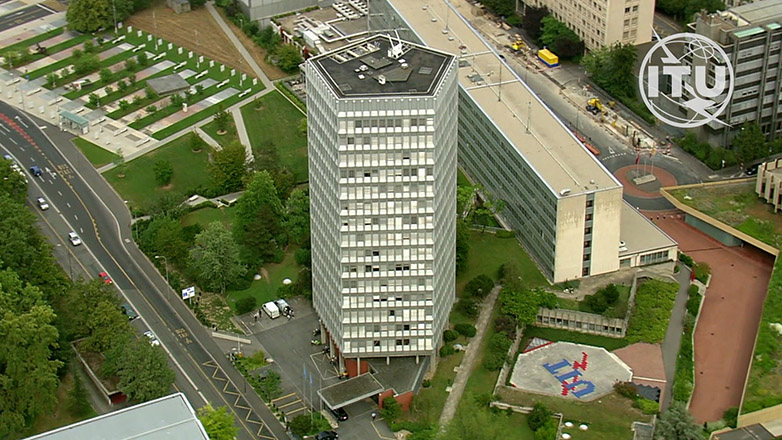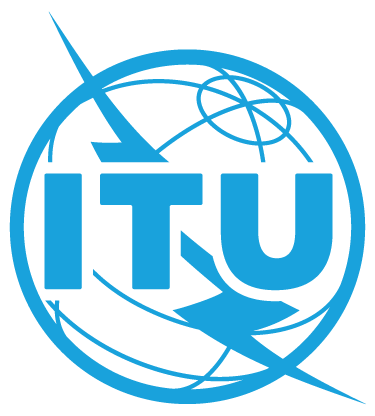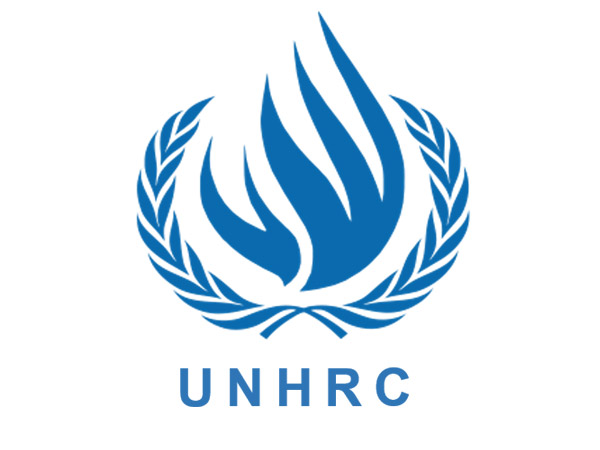Acronym: ITU, UIT
Established: 1865
Address: Place des Nations, 1202 Geneva, Switzerland
Stakeholder group: International and regional organisations
ITU is the United Nations specialised agency for information and communications technologies (ICTs), driving innovation in ICTs together with 193 member states and a membership of over 900 companies, universities, research institutes, and international organisations. Established nearly 160 years ago in 1865, ITU is the intergovernmental body responsible for coordinating the shared global use of the radio spectrum, promoting international cooperation in assigning satellite orbits, improving communications infrastructure in the developing world, and establishing the worldwide standards that foster seamless interconnection of a vast range of communications systems. From broadband networks to cutting-edge wireless technologies, aeronautical and maritime navigation, intelligent transport systems, radio astronomy, oceanographic and satellite-based Earth monitoring as well as converging fixed-mobile phone, internet, cable television and broadcasting technologies, ITU is committed to connecting the world. For more information, visit www.itu.int.

Digital activities
Some of ITU’s key areas of action include radiocommunication services (such as satellite services, and fixed/mobile and broadcasting services), developing telecommunications networks (including future networks), standardisation of various areas and media related to telecommunications, and ensuring access to bridge the digital divide and addressing challenges in ICT accessibility. ITU’s work supports emerging technologies in fields such as 5G, artificial intelligence (AI), Intelligent Transport Systems, disaster management, agriculture, smart sustainable cities, and the internet of things (IoT); access and digital inclusion; the accessibility of ICTs to persons with disabilities; digital health; ICTs and climate change; cybersecurity; gender equality; and child online protection, among others. These and many more ICT topics are covered both within the framework of radiocommunication, standardisation, and development work, through various projects, initiatives, and studies carried out by the organisation.
Digital policy issues
Telecommunication infrastructure
Information and communication infrastructure development is one of ITU’s priority areas. The organisation seeks to assist member states, sector members, associates, and academia in the implementation and development of broadband networks, wired (e.g. cable) and wireless technologies, international mobile telecommunications (IMT), satellite communications, the IoT, and smart grids, including next-generation networks, as well as in the provision of telecommunications networks in rural areas.
ITU’s International Telecommunication Regulations (ITRs) have as an overall aim the facilitation of global interconnection and interoperability of telecommunication facilities. Through the ITU Radiocommunication Sector (ITU-R), ITU is involved in the global management of the radio frequency spectrum and satellite orbits, used for telecommunications services, in line with the Radio Regulations.
The international standards developed by ITU’s Telecommunication Standardization Sector (ITU-T) enable the interconnection and interoperability of ICT networks, devices, and services worldwide. It has 11 technical standardisation committees called Study Groups (SGs), with mandates covering a wide range of digital technologies:
- SG2 – Operational Aspects
- SG3 – Economic & Policy Issues
- SG5 – Environment, EMF & Circular Economy
- SG9 – Broadband Cable & TV
- SG11 – Protocols, Testing & Combating Counterfeiting
- SG12 – Performance, QoS & QoE
- SG13 – Future networks and emerging network technologies
- SG15 – Transport, Access & Home
- SG16 – Multimedia & Digital Technologies
- SG17 – Security
- SG20 – IoT, Smart Cities & Communities
The work on standards is complemented by short-term exploration/incubation ITU-T Focus Groups (FGs) whose deliverables guide the ITU-T SGs in new areas of standardisation work:
- ITU-T Focus Group on Artificial Intelligence (AI) and Internet of Things (IoT) for Digital Agriculture (FG- AI4A)
- ITU-T Focus Group on Artificial Intelligence for Health (FG-AI4H)
- ITU-T Focus Group on Environmental Efficiency for Artificial Intelligence and other Emerging Technologies (FG-AI4EE)
- ITU-T Focus Group on Vehicular Multimedia (FG-VM)
- ITU-T Focus Group on AI for Autonomous and Assisted Driving (FG-AI4AD)
- ITU-T Focus Group on AI for Natural Disaster Management (FG-AI4NDM)
- ITU-T Focus Group on Autonomous Networks (FG- AN)
- ITU-T Focus Group on Testbeds Federations for IMT- 2020 and Beyond (FG-TBFxG)
Collaboration among various standards bodies is a high priority of ITU-T. Various platforms were established to support coordination and collaboration on various topics, for example:
- eCollaboration on Intelligent Transport SystemsCommunication Standards (CITS)
- Global Standards Collaboration (GSC)
- World Standards Cooperation (WSC)
- Digital Currency Global Initiative
- Financial Inclusion Global Initiative (FIGI) Symposium
- United for Smart Sustainable Cities (U4SSC) initiative
- Global Initiative on AI for Health (GI-AI4H)
The Telecommunication Development Sector (ITU-D) establishes an enabling environment and provides evidence-based policy-making through ICT indicators and regulatory and economic metrics, and implements a host of telecommunications/ICT projects.
In the immediate aftermath of the COVID-19 pandemic, ITU-D launched the Global Network Resiliency Platform (REG4COVID) to address the strain experienced by telecommunication networks, which are vital to the health and safety of people. The platform pools experiences and innovative policy and regulatory measures.
Discussions involving the World Bank, Global System for Mobile Communications (GSMA), and the World Economic Forum identified how to bring together communities to support ITU membership in their response to COVID-19. The Speedboat Initiative issued a COVID-19 Crisis Response:
Digital Development Joint Action Plan and Call for Action to better leverage digital technologies and infrastructure in support of citizens, governments, and businesses during the pandemic.
Connect2Recover provides country-specific support to reinforce digital infrastructures – using telework, e-commerce, remote learning, and telemedicine to prevent the spread of COVID-19 and to support recovery and preparedness for potential future pandemics. ITU worked with the Government of Japan and the Kingdom of Saudi Arabia on this initiative. ITU/WHO Focus Group on AI for Health worked on a standardised assessment framework for the evaluation of AI-based methods for health, diagnosis, triage, or treatment decisions and in early 2020 it created an Ad-hoc Group on Digital Technologies for COVID-19 Health Emergencies (AHG-DT4HE) to review the role of AI (and other digital technologies) in combatting COVID-19 throughout an epidemic’s life cycle; it also delivered guidance on digital technologies for COVID health emergency. The Group also developed AI guidance specifically for health on ethics, regulatory considerations, clinical evaluation, and data quality and continues work with ITU, WHO, and WIPO on the Global Initiative on AI for Health.
The impact statement for the Telecommunications Development Bureau’s (BDT) thematic priority on Network and Digital Infrastructure is ‘Reliable connectivity to everyone’.
ITU-D SG1 also focuses on various aspects related to telecommunications infrastructure, in particular, Question 1/1 on ‘Strategies and policies for the deployment of broadband in developing countries’; Question 2/1 on ‘Strategies, policies, regulations, and methods of migration and adoption of digital broadcasting and implementation of new services’; Question 4/1 on ‘Economic aspects of national telecommunications/ICTs’; Question 5/1 on ‘Telecommunications/ICTs for rural and remote areas’; Question 6/1 on ‘Consumer information, protection and rights’; and Question 5/2 on ‘Adoption of telecommunications/ICTs and improving digital skills’.
5G
ITU plays a key role in managing the radio spectrum and developing international standards for 5G networks, devices, and services, within the framework of the so-called IMT-2020 activities. ITU-R SGs together with the mobile broadband industry and a wide range of stakeholders established the 5G standards.
The activities include the organisation of intergovernmental and multistakeholder dialogues, and the development and implementation of standards and regulations to ensure that 5G networks are secure, interoperable, and operate without interference.
ITU-T is playing a similar convening role for the technologies and architectures of non-radio elements of 5G systems. For example, ITU standards address 5G transport, with Passive Optical Network (PON), Carrier Ethernet, and Optical Transport Network (OTN), among the technologies standardised by ITU-T expected to support 5G systems. ITU standards for 5G networking address topics including network virtualisation, network orchestration and management, and fixed-mobile convergence. ITU standards also address ML for 5G and future networks, the environmental requirements of 5G, security and trust in 5G, and the assessment of 5G quality of service (QoS) and quality of experience (QoE).
Satellite
ITU-R manages the coordination, notification, and recording of frequency assignments for space systems, including their associated earth stations. Its main role is to process and publish data and carry out the examination of frequency assignment notices submitted by administrations towards their eventual recording in the Master International Frequency Register.
ITU-R also develops and manages space-related assignment or allotment plans and provides mechanisms for the development of new satellite services by determining how to optimise the use of available and suitable orbital resources.
Currently, the rapid pace of satellite innovation is driving an increase in the deployment of non-geostationary satellite systems (NGSO). With the availability of launch vehicles capable of supporting multiple satellite launches, mega-constellations consisting of hundreds to thousands of spacecraft are becoming a popular solution for global telecommunications.
To this end, during the 2019 World Radiocommunication Conference (WRC-19), ITU established regulatory procedures for the deployment of NGSO systems, including mega-constellations in low Earth orbit.
Regarding climate change, satellite data today is an indispensable input for weather prediction models and forecast systems used to produce safety warnings and other information in support of public and private decision-making.
ITU develops international standards contributing to the environmental sustainability of the ICT sector, as well as other industry sectors applying ICTs assembling technologies to increase efficiency and innovate their service offer. The latest ITU standards in this domain address sustainable power-feeding solutions for IMT-2020/5G networks, energy-efficient data centres capitalising on big data and AI, and smart energy management for telecom base stations.






